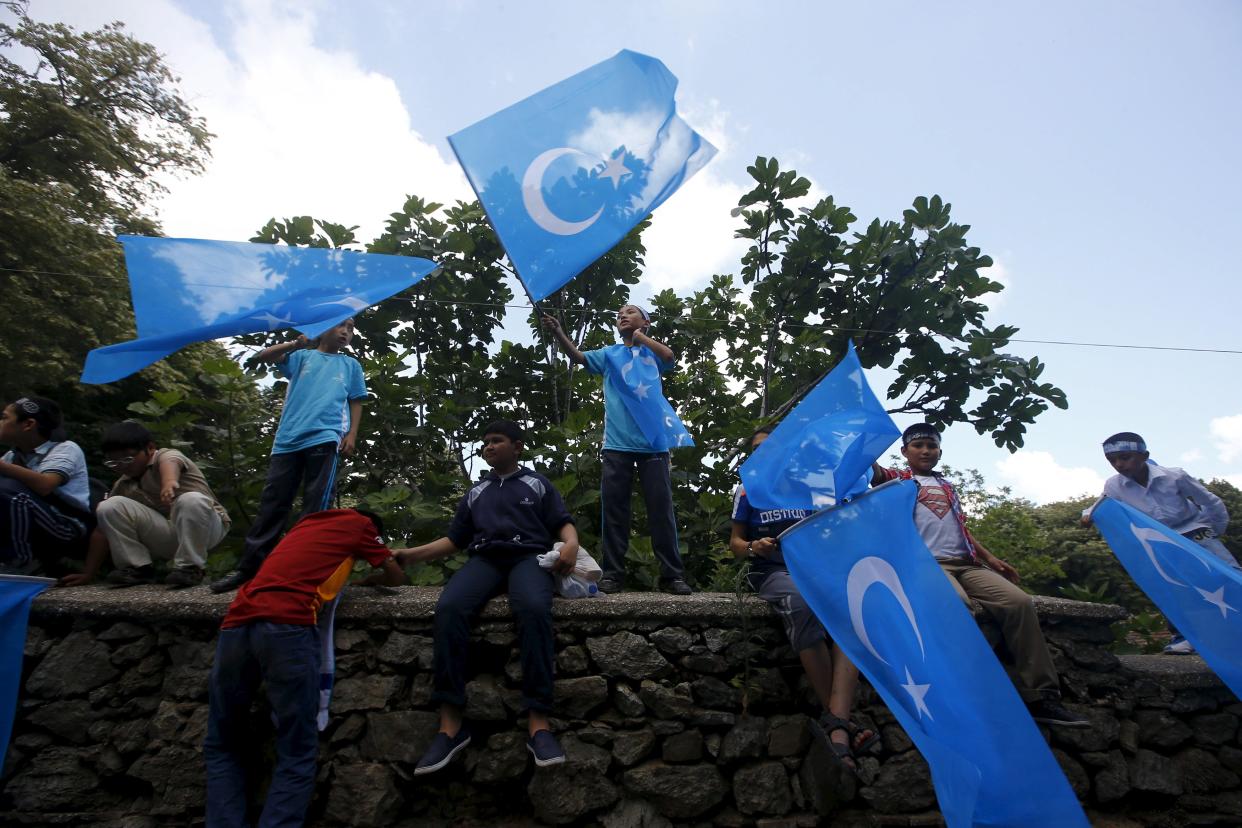Anti-China sentiment is suddenly sweeping over Turkey

Protests. Burnt flags. Attacks on tourists and restaurants. Rampant racism on social media.
Anti-China sentiment has been reaching new heights in Turkey over the last few weeks, as Turkish President Recep Tayyip Erdogan is set to make an official state visit to China later this month.
It started at the beginning of July, when a Chinese restaurant in Istanbul was attacked by five men with sticks and stones.
"We do not want a Chinese restaurant here, get out of our town!" the men were heard saying, according to Al-Monitor.
A few days later, a Korean tourist mistaken to be Chinese was attacked by a group of ultra-nationalists in the capital. On the same day in Balikesir, protesters hung an effigy of Mao Zedong. And a few days later, the protests spread again to Istanbul, where Chinese tourists were attacked and harassed, according to CNN.
The protests gathered momentum a few weeks ago, when reports emerged that Uighurs — who share ethnicity and have close cultural ties with Turkish Muslims — who are living in western regions of China had allegedly not been allowed to fast during the holy month of Ramadan. Those allegations have been denied by the Chinese government. Uighurs make up around 45% of the Xinjiang autonomous region of China.
On July 9, a group of about 200 men who are believed to be part of the East Turkestan Solidarity Groupattacked the Thai embassy in Istanbul with rocks and wooden planks. The attack followed the repatriation of over 100 Uighurs back to China by the Thai government.
In a recent interview, Devlety Bahceli, chairman of the far-right Nationalist Action Party (MHP) in Turkey, whose members have been accused of assaulting tourists, said they are "sensitive to injustices in China."
"Our nationalist youth is sensitive to injustices in China. They should have the freedom to exercise their democratic rights. These are young kids. They may have been provoked. Plus, how are you going to differentiate between Korean and Chinese? They both have slanted eyes. Does it really matter?" he said, according to Al-Monitor.

Those racist comments caused uproar in national and international media. And following growing social pressure, Nationalist Action Party members told Al-Monitor that they view all tourists as their guests. The head of the Grey Wolves, the youth wing of the MHP in Istanbul, told the BBC that the attacks took place between protesters and the police — and that no tourists were harmed.
"The safety of every tourist coming to our country is our responsibility. We can't tolerate any sort of violence," he said.
Amid the multiplying attacks, the Chinese embassy issued a travel warning to its citizens and told them to avoid going out alone, getting close to protests, or taking pictures of them. The Chinese Philharmonic Orchestra also canceled its August concert in Istanbul, and local police announced it would provide extra security for an exhibition by a Chinese artist.
Cihan Yavuz, the owner of Happy China, the restaurant that was attacked in early July, says the attack was "baseless." Yavuz is Turkish and employs an Uighur cook. He had invested his life savings in the restaurant that now has to close down.
"If people want to protest the Chinese government, they can hold demonstrations in front of its embassy. It's not right to use violence for the sake of protesting," he told the BBC.
NOW WATCH: 9 non-chemical ways to fall asleep super fast
See Also:

